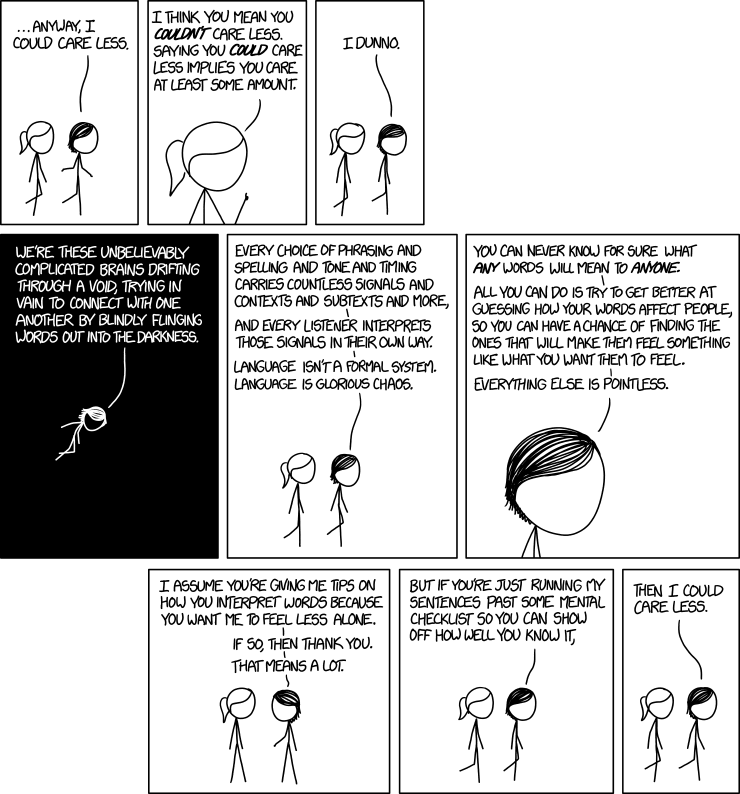Interpretations of Words
From: xkcd
If I say "there is a ball," many people would interpret it as a ball from some sort of sport such as soccer, some would interpret it as a smooth sphere with no discernible features, or perhaps one would interpret it as a football which is absolutely not spherical. Now even if we get more specific, "there is a soccer ball," the different interpretations still exist most people would think of a ball with black and white hexagons, but I think of an orange soccer ball I had as a child. We could try to go into mind-boggling specifics about the shape and color of the ball, but usually that is extraneous and boring, and even after the in-depth explanation there would still be slight differences in the interpretations. The usefulness of language is quick communication, the hope is to use as little words as possible to get your point across to the other person.
From: xkcd
Here, the man is referring to a multitude of objects using incorrect and made-up terms. However, we can understand what he is talking about, because we can connect our references of words to build a construct that would resemble what the man is talking about and then use context to decide which word he is describing. This man's words are working like a dictionary does by building a definition using other words.
The study of the meaning of words is called Lexical Semantics. But what exactly are the meanings of words? Dictionaries just give you different words to describe a meaning, and you hope that you'll understand the words that it uses to describe it. Every person has a different meaning which words refer to for them, our hope in communication is to refer to the right meanings in order to make the other person feel what we want them to.



I like the images you found to help illustrate these concepts from Chapter 4.
ReplyDeleteI like how you brought up how the man in the second image is creating words for things that have a completely different name, and yet, we are still able to remember them. It does, however, remind me of how other languages may do something similar when they create words for new inventions. For example, in German, the word for "airplane" is "Flugzeug." The German word can be split apart and come to the meaning of something like "fly thing" or "flight stuff." While there are likelyother reasons for why German decided to use that word, I think it is interesting. Thank you for the post!
ReplyDelete